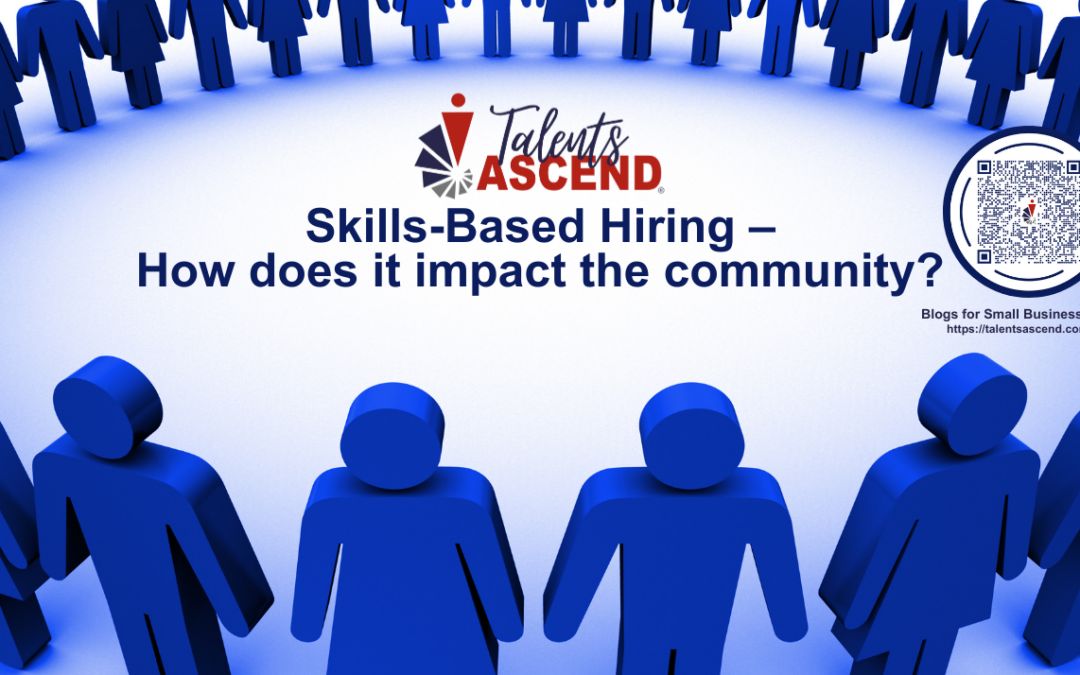Ever wonder how your hiring practices impact the community? A skills-based hiring model is often considered better for underserved talent pools for several reasons:
Focus on Abilities Over Credentials: Traditional hiring practices often emphasize formal qualifications, such as degrees from specific institutions or years of experience in a particular role. This can disadvantage candidates from underserved communities who may not have had the same access to educational resources or professional networks. A skills-based approach prioritizes what candidates can actually do, which can better highlight the capabilities of individuals from diverse backgrounds.
Diverse Talent Pool: Emphasizing skills allows employers to tap into a more diverse talent pool. By concentrating on skills and practical abilities, this model can help reduce biases related to educational background, socioeconomic status, or other factors that unfairly impact hiring decisions. It shifts the focus from potentially biased metrics to concrete, demonstrable abilities. This can include individuals from marginalized communities and by providing opportunities based on demonstrated skills rather than background, employers can support social inclusion and economic stability.
Improved Self-Sufficiency: Stable employment gained through skills-based hiring can empower individuals economically and socially. It provides a pathway to self-sufficiency, reducing reliance on social services and decreasing the likelihood of experiencing homelessness or food insecurity or depression leading to suicidal ideations. Many underserved talent pools might not have had equal opportunities to gain formal qualifications or extensive experience. By focusing on skills, employers can create a more equitable hiring process that values what candidates can contribute rather than how they acquired their credentials.
Enhanced Mental Health: Unemployment and underemployment are significant risk factors for mental health issues and suicide. By facilitating employment through skills-based hiring, individuals gain not just financial stability but also a sense of purpose and belonging, which can positively impact mental well-being and reduce suicide rates.
Improves Job Matching: This model helps employers better match candidates’ actual capabilities with job requirements. It can lead to better job performance and satisfaction, as candidates are hired based on their ability to meet the specific needs of the role rather than on generalized qualifications that may not fully align with job responsibilities.
Breaking the Cycle: For individuals with a history of incarceration, skills-based hiring offers a chance to break the cycle of recidivism by providing a legitimate means of income and reintegrating into society. This reduces the likelihood of returning to illegal activities out of desperation and increases the chances of successful rehabilitation.
In summary, a skills-based hiring model aligns hiring practices more closely with the actual capabilities required for a role, which can help bridge gaps for underserved talent pools and promote a more inclusive and equitable workforce. A skills-based hiring addresses these societal challenges by promoting inclusivity, offering pathways to stable employment, supporting economic independence, improving mental health outcomes, better job matching and breaking cycles of poverty and recidivism. By focusing on what individuals can do rather than their past circumstances, it creates opportunities for a more equitable and supportive society.

